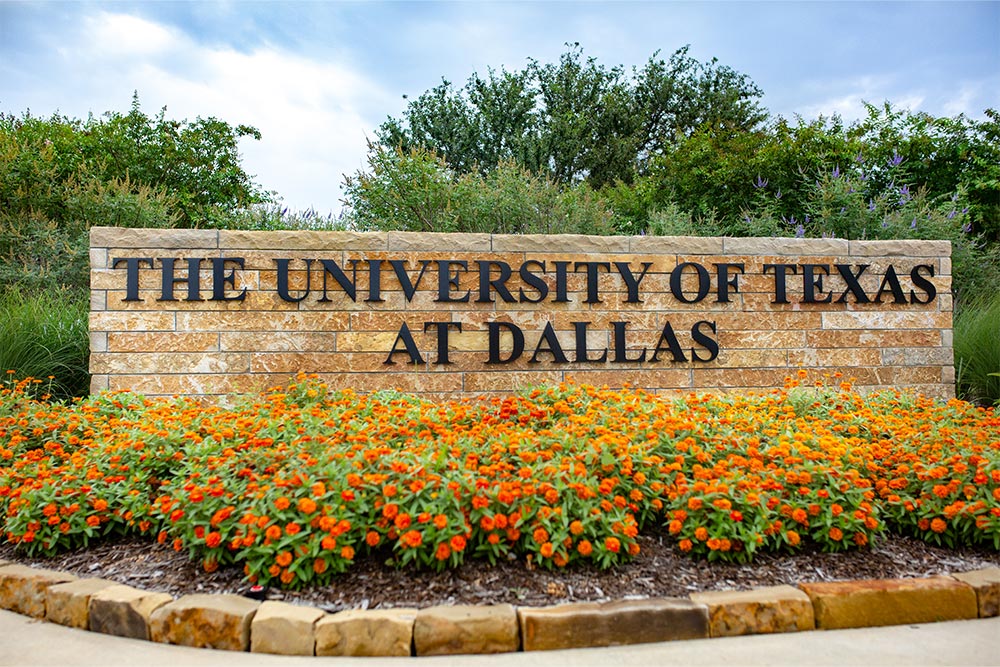
Royalties generated from a technology developed by University of Texas at Dallas researchers are being used to establish eight new endowments in the School of Natural Sciences and Mathematics, including two distinguished chairs, an early career faculty award and graduate student fellowships.
In 2014, a drug to treat a rare genetic disease called Morquio A syndrome was approved by the Food and Drug Administration. A key step in producing the drug uses biotechnology originating from a research discovery of Dr. Rockford Draper, professor of biological sciences, and his colleagues in the 1980s.
“These funds will help faculty look at the unknowns in their fields and choose the direction they think will be most successful. Over time, this will generate new knowledge that can be applied to improve the human condition.”
Dr. Rockford Draper, professor of biological sciences in the School of Natural Sciences and Mathematics
Morquio A syndrome is an inherited genetic disorder that occurs in roughly one of every 200,000 births. Patients with the syndrome suffer from a genetic mutation that inhibits the production of an enzyme necessary to remove sulfate from complex carbohydrates throughout the body. If sulfate is not removed, complex carbohydrates accumulate in patients’ bones, cartilage and connective tissues, resulting in serious medical issues.
BioMarin Pharmaceuticals created a breakthrough enzyme replacement therapy treatment for the disorder in 2001. To develop the therapy, BioMarin needed an efficient way to produce and isolate the necessary enzyme. The company found the key to doing so in work published by Draper, whose research two decades earlier centered around the ability of mammalian cells to target proteins to cellular locations where those proteins are needed.
During his research, Draper had isolated a mutant cell line that was defective in its targeting process for a class of proteins called lysosomal enzymes, which includes the enzyme missing in patients with Morquio A syndrome.
BioMarin licensed the use of Draper’s mutant cell line, harvesting the enzyme secreted by these cells to use in its replacement therapy. After extensive clinical trials and testing, patients began receiving the treatment in 2014, and it quickly became one of the company’s top-selling products.
Since production of the drug used in the therapy relied on intellectual property licensed from UT Dallas, the University receives royalties from the treatment’s sale. To date, more than $2.75 million in royalties has been directed to endowments, fully funding the Rockford Draper Early Career Faculty Development Award in Biological Sciences, which was first given to Dr. Darshan Sapkota, assistant professor of biological sciences, in 2021. The Rockford Draper Distinguished University Chair in Biological Sciences will also soon be fully funded by the royalties. If the royalty income continues as expected, a total of almost $20 million will have been directed into the endowments.
For Draper, the endowments are a long-term way to support life-changing research and establish a pipeline of talented scientists while providing faculty with latitude to push boundaries in their disciplines.
“These funds will help faculty look at the unknowns in their fields and choose the direction they think will be most successful,” Draper said. “Over time, this will generate new knowledge that can be applied to improve the human condition.”

